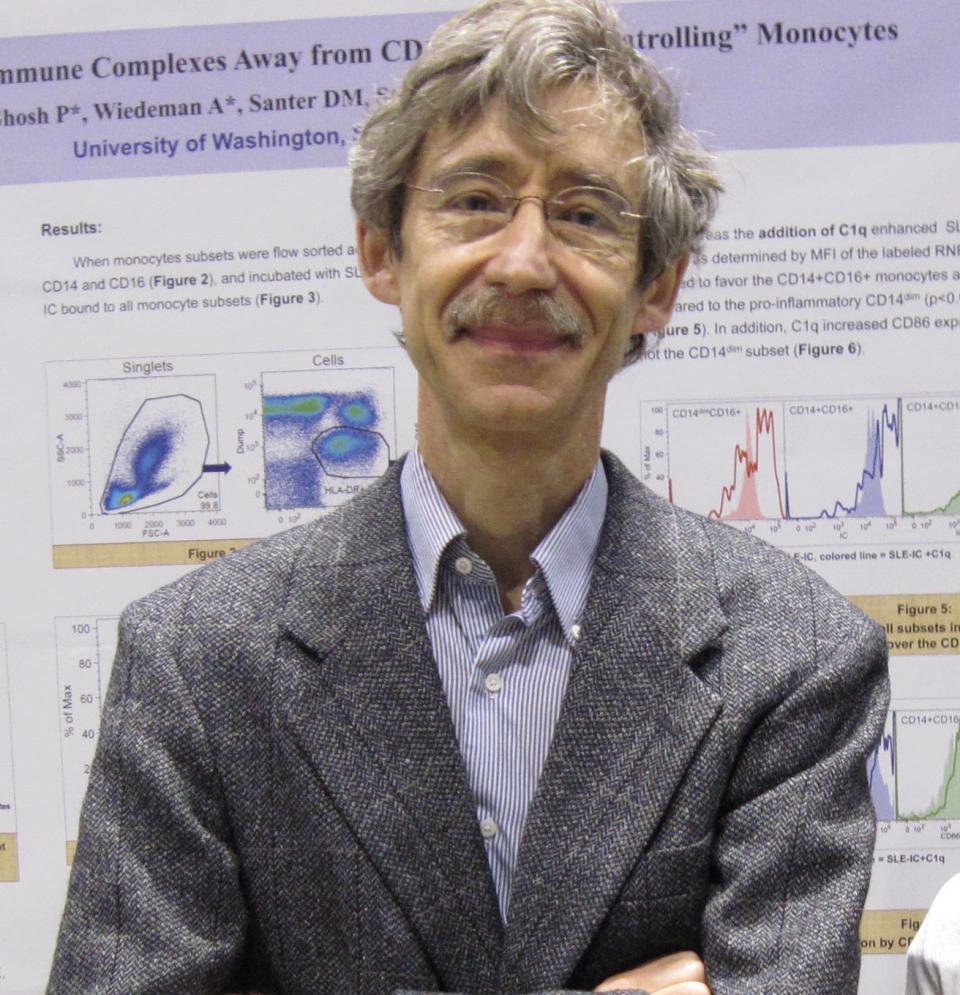
Lab Staff
Type I interferons are the major inflammatory proteins made by the innate immune system following virus infections. Surprisingly overexpression of type I interferon is very prominent feature observed in about three quarters of Lupus (SLE) patients as well as in related autoimmune diseases such as scleroderma, polymyositis and primary Sjogren’s syndrome. There is also some suggestion that this pathway may be implicated in organ specific autoimmune diseases such as Type 1 Diabetes and some cases of rheumatoid arthritis.
There is a major unmet medical need in lupus. There has been only one new drug approved by the FDA in the last 50 years and the drugs in common use today have significant side effects. Therefore there is a pressing need both to better understand how the disease develops and to use that knowledge to devise new, more effective forms of therapy.
The two major goals of my research are a) to understand the abnormalities in the innate immune system responsible for initiating the autoimmune diseases like lupus and b), using this knowledge, to design new forms of therapy that could work at the earliest stages of disease thereby preventing severe inflammation. The specific questions that my laboratory addresses are:
- What are the cell death abnormalities that provoke an immune response?
- How does the cell debris released from dying cells stimulate inflammation - especially the type 1 interferon response?
- Which interferon pathways are specifically abnormal in lupus and related autoimmune disorders?
- Can we use environmental triggers (sunlight) to uncover differences in the interferon response in lupus versus controls?
- How can we develop therapeutics to abrogate early activation of interferon pathways?
Publications
 |
 |
|
|
|

